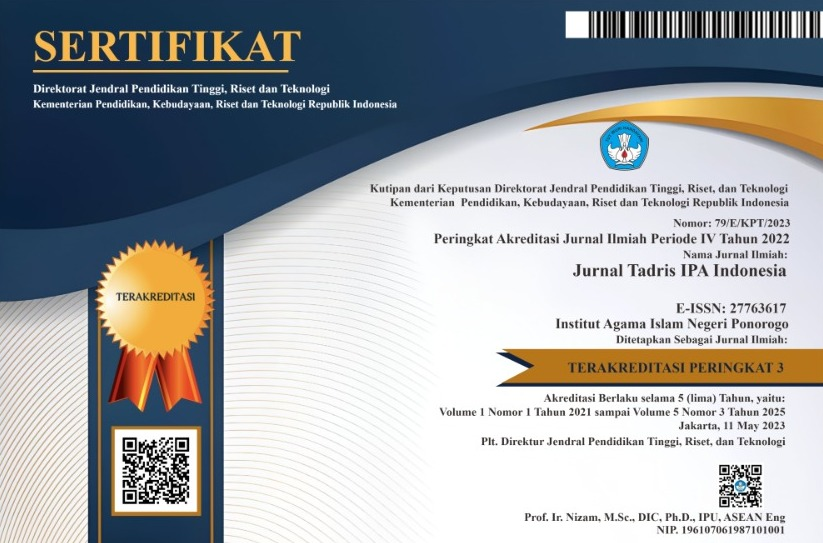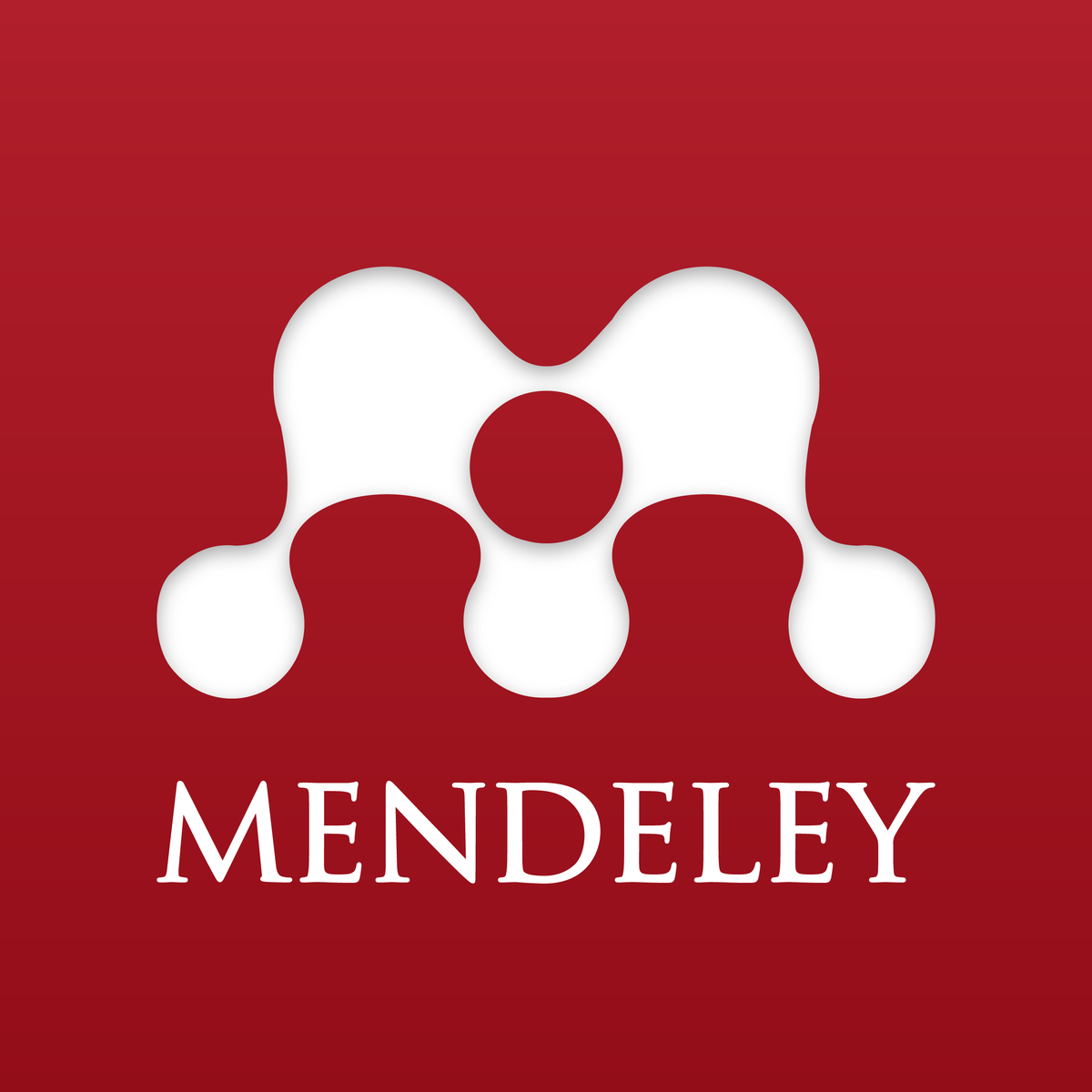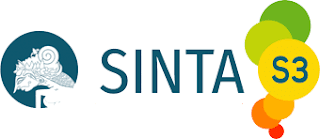Penerapan Teori Pembelajaran Kontekstual dengan Pendekatan Scientific Literacy terhadap Keterampilan Mengambil Keputusan
Abstract
Perkembangan abad 21 mengharuskan peserta didik untuk memiiliki keterampilan berpikir tingkat tinggi. Salah satu keterampilan berpikir tingkat tinggi abad 21 adalah keterampilan mengambil keputusan. Sains yang bersifat abstrak membutuhkan pendekatan yang sesuai dalam pembelajaran, salah satunya adalah dengan diterapkannya teori pembelajaran kontekstual dengan pendekatan scientific literacy. Penelitian ini bertujuan untuk mengetahui hasil pengambilan keputusan dan indikator keterampilan pengambilan keputusan peserta didik pada topik ekologi, juga untuk mengetahui apakah terdapat dampak dan pengaruh yang signifikan terhadap keterampilan pengambilan keputusan dari penerapan teori pembelajaran kontekstual dan pendekatan literasi sains. Penelitian ini menggunakan metode kuantitatif dengan jenis penelitian eksperimen yang menggunakan desain one group pre-test and post-test design. Teknik pengambilan sampel berupa nonprobability sampling. Sampel yang digunakan adalah 14 peserta didik kelas VII SMP Muhammadiyah Boarding School Pringkuku. Analisis data yang dilakukan adalah analisis parametrik dengan melakukan uji paired sample t-test. Hasil penelitian menunjukkan terdapat variasi keputusan setiap peserta didik dengan indikator pengambilan keputusan tertinggi dalam mengidentifikasi pilihan dan menentukan pilihan. Terdapat pengaruh dan perubahan yang signifikan dengan rata-rata selisih sebesar 14,28 dan effect size sebesar 1,322. Hasil penenitian ini menunjukkan bahwa penerapan teori pembelajaran kontekstual dengan pendekatan scientific literacy memberikan dampak yang positif terhadap keterampilan mengambil keputusan bagi peserta didik.
References
Adinolfi, V. T. S. (2018). Scientific Literacy as a Tool for Ethichal Decision-Making Process: The Role of Languange. In Bioethics, Medical Ethics and Health Law (p. 12). ISAS International Seminars.
Afifah, S., Mudzakir, A., & Nandiyanto, A. B. D. (2022). How to Calculate Paired Sample t-Test using SPSS Software: From Step-by-Step Processing for Users to the Practical Examples in the Analysis of the Effect of Application Anti-Fire Bamboo Teaching Materials on Student Learning Outcomes. Indonesian Journal of Teaching in Science, 2(1), 81–92. https://doi.org/10.17509/ijotis.v2i1.45895
Afni, N., & Hartono. (2020). Contextual teaching and learning (CTL) as a strategy to improve students mathematical literacy. Journal of Physics: Conference Series, 1581(1). https://doi.org/10.1088/1742-6596/1581/1/012043
AH Mahmud, D. I., & Warto, W. (2021). Improving Students’ Critical Thinking Ability through Learning Local History of Tanggomo with Contextual Teaching and Learning Approach at SMAN 03 Gorontalo. Budapest International Research and Critics in Linguistics and Education (BirLE) Journal, 4(1), 606–614. https://doi.org/10.33258/birle.v4i1.1784
Ahdhianto, E., Marsigit, Haryanto, & Santi, N. N. (2020). The effect of metacognitive-based contextual learning model on fifth-grade students’ problem-solving and mathematical communication skills. European Journal of Educational Research, 9(2), 753–764. https://doi.org/10.12973/eu-jer.9.2.753
AlWahaibi, I. S. H., AlHadabi, D. A. M. Y., & AlKharusi, H. A. T. (2020). Cohen’s criteria for interpreting practical significance indicators: A critical study. Cypriot Journal of Educational Sciences, 15(2), 246–258. https://doi.org/10.18844/cjes.v15i2.4624
Arif, M. M., & Ma’rifati, R. K. D. N. (2019). Implementasi Strategi Pembelajaran KOntekstual di MI (Madrasah Ibtidaiyah). Jurnal Premiere, 1(2), 21–34. https://www.minsal.cl/wp-content/uploads/2019/01/2019.01.23_PLAN-NACIONAL-DE-CANCER_web.pdf
Arifah, R., & Marzuki, I. (2021). Constructivism Theory of Learning Solutions During the Covid-19 Pandemic in Indonesia. International Journal of Education, Information Technology and Others (IJEIT), 4(1), 91–96. https://doi.org/10.5281/zenodo.4668019
Badriyah, K., Sapri, J., & Kurniah, N. (2022). Understanding The Effect of Learning Strategies and Independence on Language Capability : An Experimental Study on Early Childhood in North Bengkulu Regency. International Journal of Multicultural and Multireligious Understanding, 9(2), 711–720. https://doi.org/http://dx.doi.org/10.18415/ijmmu.v9i2.3531
Campbell, V., Lofstrom, J., & Jerome, B. (1997). Decisions Based on Science. In National Science Teachers Association. Arlington VA.
Dewi, C. A., Erna, M., Martini, Haris, I., & Kundera, I. N. (2021). Effect of Contextual Collaborative Learning Based Ethnoscience to Increase Student’s Scientific Literacy Ability. Journal of Turkish Science Education, 18(3), 525–541. https://doi.org/10.36681/tused.2021.88
Fadhilah, F., Effendi, Z. M., & Ridwan, R. (2021). Development of Contextual Teaching and Learning (CTL) Models in Applied Physics Courses. International Journal of Multicultural and Multireligious Understanding, 8(3), 364. https://doi.org/10.18415/ijmmu.v8i3.2425
Goodwill, A. M., & Chen, S. H. A. (2021). The Science of Lifelong Learning. Unesco - Institute for Lifelong Learning, April, 1–26. https://doi.org/10.31234/osf.io/juefx
Hariri, A., Muslim, S., Ekohariadi, E., & Yundra, E. (2021). The effect of creative thinking in improving decision making. Management Science Letters, 11, 1765–1770. https://doi.org/10.5267/j.msl.2021.2.006
Haryanto, P. C., & Arty, I. S. (2019). The Application of Contextual Teaching and Learning in Natural Science to Improve Student’s HOTS and Self-efficacy. Journal of Physics: Conference Series, 1233(1). https://doi.org/10.1088/1742-6596/1233/1/012106
Hermasari, B. K., Afifah, B. S., & Cahya, E. B. (2019). Association between interprofessional collaboration readiness and clinical decision making ability of midwifery students. Journal of Education and Learning (EduLearn), 13(4), 498–501. https://doi.org/10.11591/edulearn.v13i4.13581
Jain, P., Mehta, S., Vora, A., Joshi, A., & Dalvi, H. (2017). Augmented Reality Books: An Immersive Approach to Learning. Conference: ICCUBEA 2017At: Pimpri-Chinchwad, Maharashtra, India, December. https://www.researchgate.net/publication/322137851
Johnson, E. B. (2002). Contextual Teaching and Learning: What it is and why it’s here to stay. In Sage Publication. Sage Publication.
Lutfauziah, A. (2020). Learning Methods of Decision Making Skills: Discussion, Assignment, and Practice Case Study in Islamic Boarding School of Jagad ’Alimussirry, Indonesia. Education and Human Development Journal, 5(1), 1–8. https://doi.org/10.33086/ehdj.v5i1.1496
Lutfia Fajriah, Surahman, E., & Mustofa, R. F. (2021). Relationship Between Critical Thinking Skills and Students’ Decision-Making Skills on Virus Materials In MAN 1 Tasikmalaya. Mangifera Edu, 6(1), 68–81. https://doi.org/10.31943/mangiferaedu.v6i1.115
Mahpudoh, M., & Romdhoningsih, D. (2022). Analysis of Contextual Learning Application in the Developing of Short Storytelling Writing Ability. International Journal of Economy …, 2(2), 289–299. https://doi.org/10.53067/ije3.v2i2
Narut, Y. F., & Supardi, K. (2019). Literasi Sains Peserta Didik Dalam Pembelajaran Ipa Di Indonesia. Jurnal Inovasi Pendidikan Dasar, 3(Vol. 3 No. 1 (2019): JIPD (Jurnal Inovasi Pendidikan Dasar)), 61–69.
Nurhairani, Nurhairani, Rozi, F., & Prawijaya, S. (2019). The Development of Problem-Based Learning Model with Scientific Literacy Approach in Elementary School. 208(Icssis 2018), 230–233. https://doi.org/10.2991/icssis-18.2019.46
Pegrum, M. (2021). Augmented reality learning: education in real-world contexts. Innovative Language Pedagogy Report, 2021, 115–120. https://doi.org/10.14705/rpnet.2021.50.1245
Pramudawardani, H., & Prasetyo, Z. K. (2021). Perception Graduates Science Education in Socio Scientific Issues Related with Scientific Communication and Critical Attitude. Proceedings of the 6th International Seminar on Science Education (ISSE 2020), 541(Isse 2020), 692–699. https://doi.org/10.2991/assehr.k.210326.100
Rafsanjani, M. A., Fitrayati, D., Andriansyah, E. H., Abdul, M., & Prakoso, A. F. (2021). Understanding Development of Research Methodology Textbook Based-On Contextual Teaching and Learning. Internasional Journal of Multicultural and Multireligious Understanding, 8(12), 618–626. https://doi.org/http://dx.doi.org/10.18415/ijmmu.v8i12.3330
Sahir, S. H. (2022). Metodologi Penelitian. Penerbit KBM Indonesia.
Saputra, I. G. P. E., Sukariasih, L., Nursalam, L. O., & Desa, S. S. (2022). The Effect of Scientific Literacy Approach with Discovery Learning Model toward Physics Concepts Understanding. Jurnal Pendidikan Fisika, 10(2), 144–153. https://doi.org/10.26618/jpf.v10i2.7769
Sarwari, K., & Kakar, A. F. (2023). Developing Students’ Critical Thinking Skills through Contextual Teaching and Learning. Journal of Cognition, Emotion, and Education, 14(2), 340–351. https://doi.org/https://doi.org/10.22034/cee.2023.172192
Setiawan, A. A., Muhtadi, A., & Hukom, J. (2022). Blended Learning and Student Mathematics Ability in Indonesia: A Meta-Analysis Study. International Journal of Instruction, 15(2), 905–916. https://doi.org/10.29333/iji.2022.15249a
Siagian, A. F., Ibrahim, M., & Supardi, Z. A. I. (2022). The Effectiveness of the Creative-Scientific Decision Making Skills (CSDMS) Model to Practice Creative Thinking Skills and Decision Making Skills. IJORER : International Journal of Recent Educational Research, 3(5), 631–639. https://doi.org/10.46245/ijorer.v3i5.251
Sugiyono. (2019). Metode Penelitian Kuantitatif, Kualitatif dan R&D. Penerbit Alfabeta.
Suryandari, K. C., Rokhmaniyah, & Wahyudi. (2021). The Effect of Scientific Reading Based Project Model in Empowering Creative Thinking Skills of Preservice Teacher in Elementary School. European Journal of Educational Research, 10(4), 1907–1918. https://doi.org/https://doi.org/10.12973/eu-jer.10.3.1329
Sutter, A. M. K., Dauer, J. M., & Forbes, C. T. (2018). Application of construal level and value-belief norm theories to undergraduate decision-making on a wildlife socio-scientific issue. International Journal of Science Education, 40(9), 1058–1075. https://doi.org/10.1080/09500693.2018.1467064
Syahwati, F., & Arif, S. (2022). Analysis of the Effect of Scientific Literacy and Questioning Ability on Science Learning Outcomes. INSECTA: Integrative Science Education and Teaching Activity Journal, 3(2), 150–157. https://doi.org/10.21154/insecta.v3i2.5127
Syaifuddin, T., Nurlaela, L., & P, S. P. (2021). Contextual Teaching and Learning (CTL) Model to Students Improve Learning Outcome at Senior High School of Model Terpadu Bojonegoro. IJORER : International Journal of Recent Educational Research, 2(5), 528–535. https://doi.org/10.46245/ijorer.v2i5.143
Tanti, Maison, Syefrinando, B., Daryanto, M., & Salma, H. (2020). Students’ self-regulation and motivation in learning science. International Journal of Evaluation and Research in Education, 9(4), 865–873. https://doi.org/10.11591/ijere.v9i4.20657
Taufiq, T., Budiarto, M. T., & Siswono, T. Y. E. (2023). Exploring What Teacher’s Decision-Making in Designing Mathematical Assignments?: Case Studies in Beginner. IJORER : International Journal of Recent Educational Research, 4(4), 497–513. https://doi.org/10.46245/ijorer.v4i4.377
Toheri, Winarso, W., & Haqq, A. A. (2020). Where exactly for enhance critical and creative thinking: The use of problem posing or contextual learning. European Journal of Educational Research, 9(2), 877–887. https://doi.org/10.12973/eu-jer.9.2.877
Yulianti, Y. (2017). Literasi Sains dalam Pembelajaran IPA. Jurnal Cakrawala Pendas, 3(2), 1–23. https://doi.org/https://dx.doi.org/10.31949/jcp.v3i2.592
Zahro, L., & Irawan, E. (2022). Efektivitas Model Pembelajaran Think Talk Write (TTW) dengan Pendekatan Scientific Literacy terhadap Keterampilan Presentasi Peserta Didik MTs Kelas VIII. Jurnal Tadris IPA Indonesia, 2(1), 35–44. https://doi.org/https://doi.org/10.21154/jtii.v2i1.466
Copyright (c) 2024 Alsya Nurnabilla Tasyakuri, Ulinnuha Nur Faizah

This work is licensed under a Creative Commons Attribution-NonCommercial-ShareAlike 4.0 International License.
Jurnal Tadris IPA Indonesia allow the author(s) to hold the copyright without restrictions and allow the author(s) to retain publishing rights without restrictions, also the owner of the commercial rights to the article is the author.








